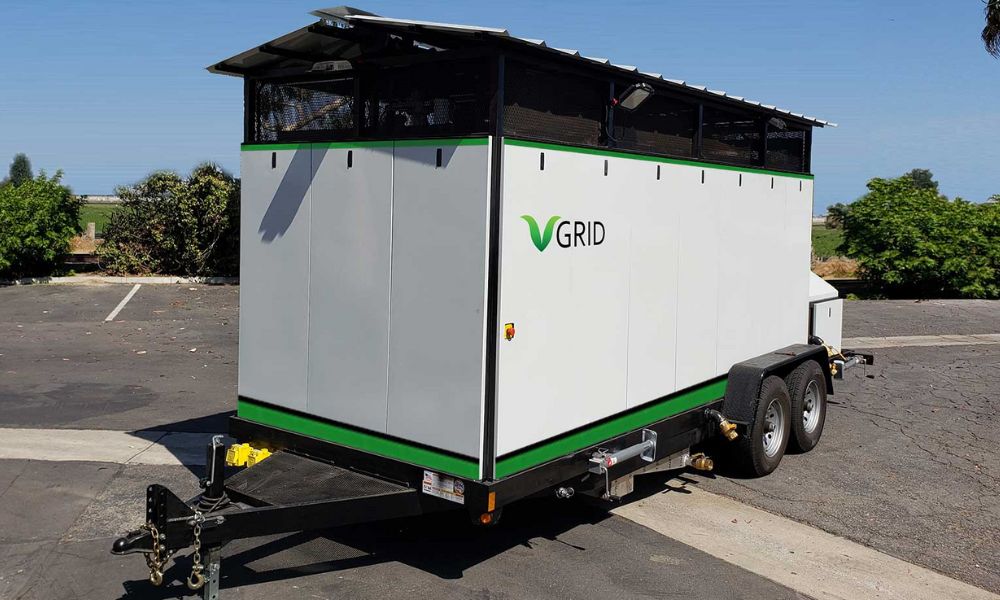Pyroligneous Acid (PA)
White Paper
Discover the powerful benefits PA provides for the plant-soil system — and the planet.
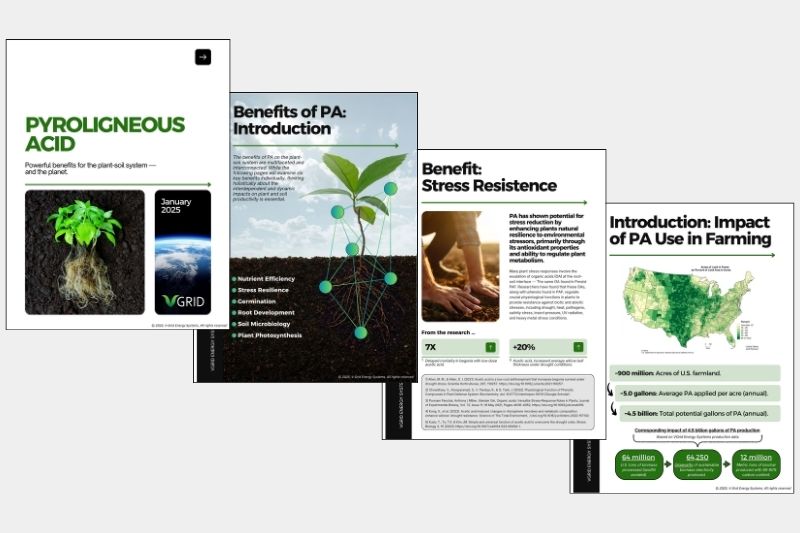
What is Pyroligneous Acid?
Pyroligneous acid (PA) is a synergistic mix of organic acids, phenols, and other biomolecules that boost seed germination, plant development, and soil productivity. Extensive academic research and crop trials have validated the positive impact on plants and soil. PA is cost-effective and can be produced in substantial quantities from agricultural and forestry waste. Furthermore, PA is typically produced within a process that generates renewable biomass energy and biochar, providing durable CO₂ removal and helping to reverse climate change.
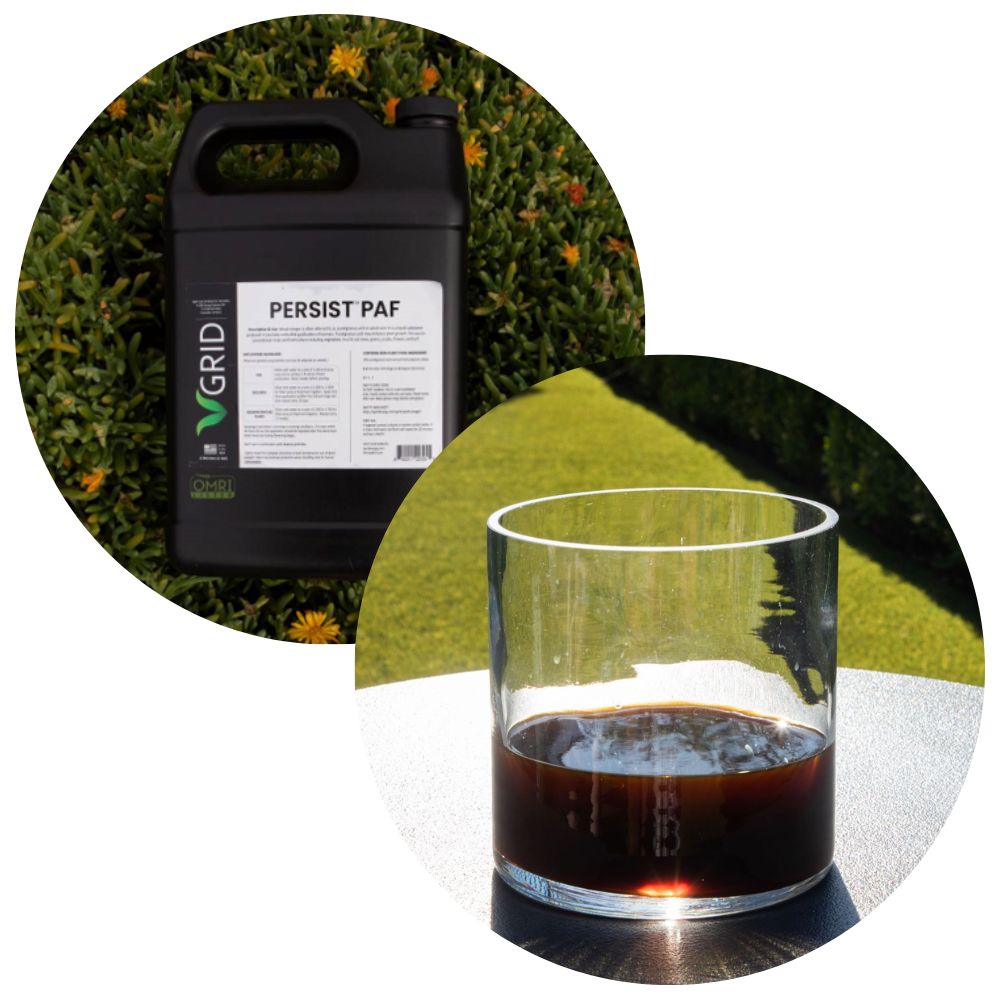
VGrid’s mission is to reverse climate change.
We’ve reached a tipping point on climate change. To turn the tide, we need solutions that are technologically proven, highly scalable, and economically viable, while removing significant quantities of atmospheric CO2.
VGrid’s proprietary Bioserver® transforms agricultural and forestry waste into sustainable and reliable electricity. This process also produces high-quality biochar and pyroligneous acid (PA). When VGrid’s biochar is integrated into soil, it net removes nearly three times its weight in CO2.
Environmental Impact
Adopting Pyroligneous Acid (PA) in U.S. Agriculture
Climate Impact of PA Use in U.S. Farming.
(1) U.S. Department of Agriculture, National Agricultural Statistics Service. (2024, March). Farms and Farmland: 2022 Census of Agriculture Highlights (ACH22-3).
(2) Estimated annual application rate based on Persist PAF. Validated across multiple crop and nursery trials and customer use.
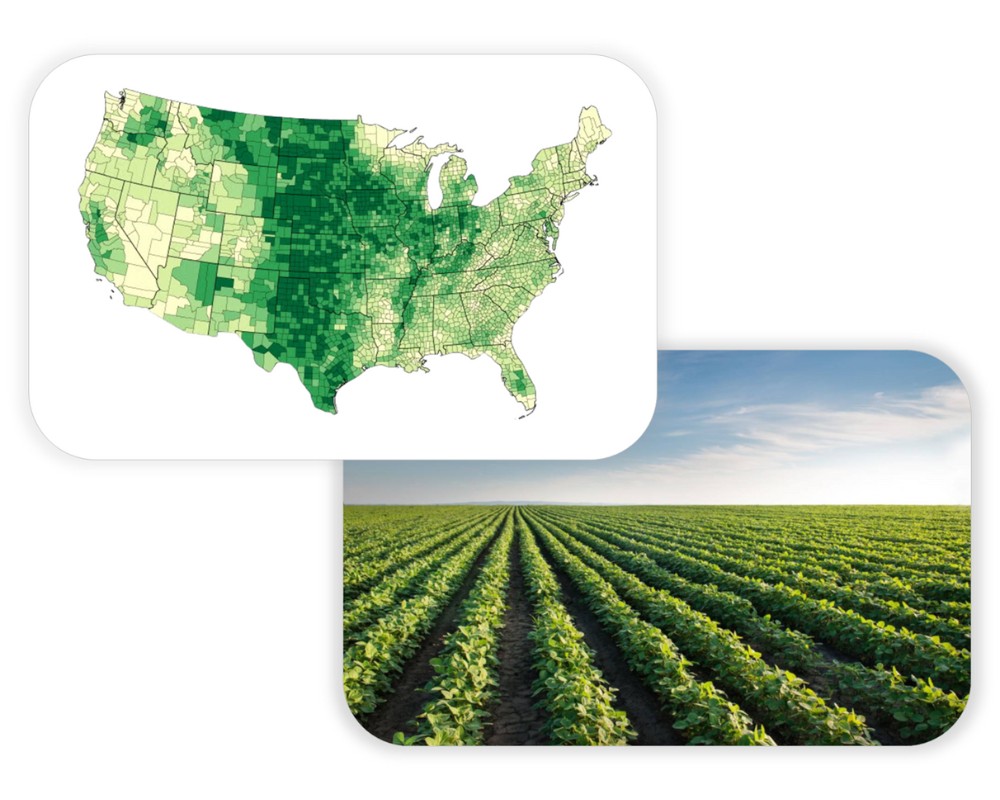
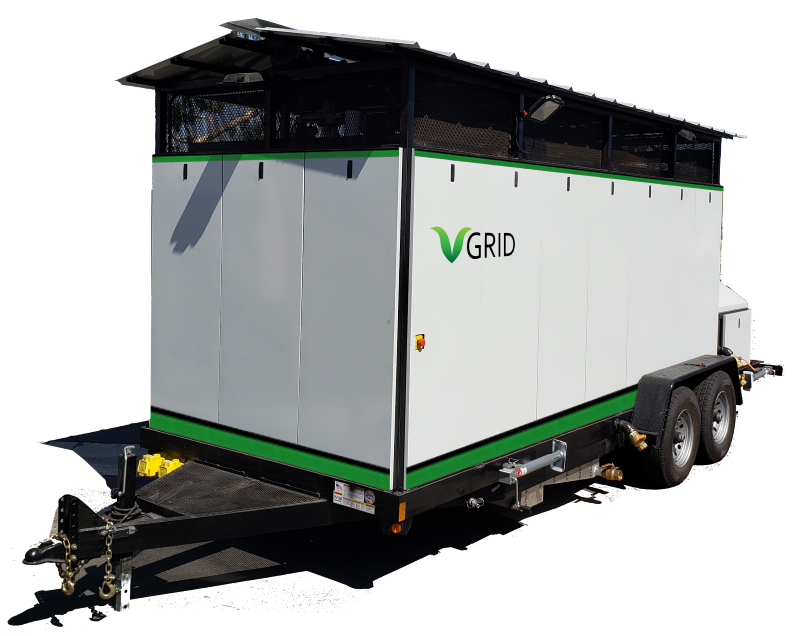
Based on Bioserver production data, the following impacts are possible with PA adoption within U.S. agriculture.

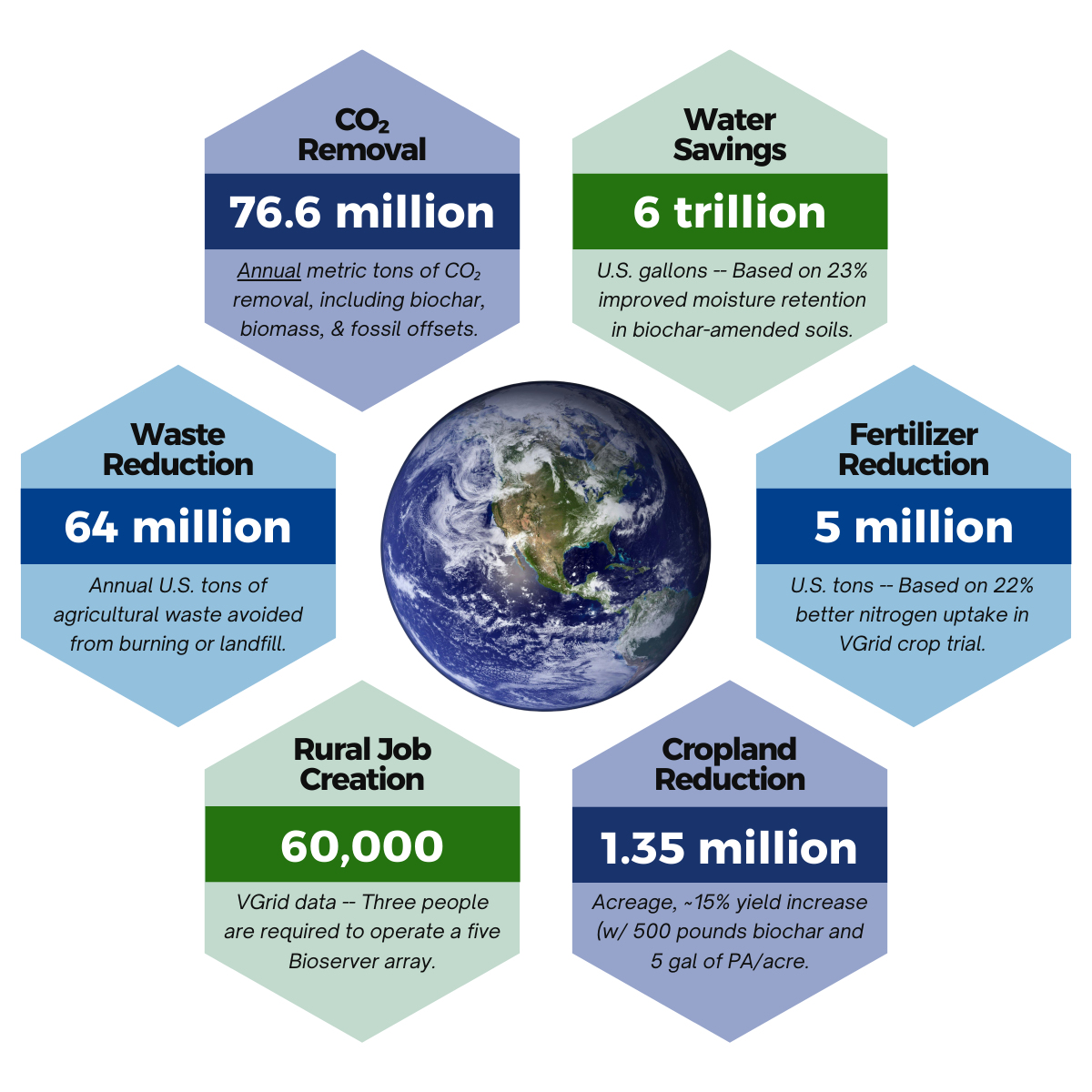
New University Study: Persist PAF Enhances Beneficial Bacteria in Growing Medium and Rhizosphere.
Hydroponics tomato study; Wageningen University and Research (the Netherlands)
PAF-treated biochar significantly increased the abundance of beneficial bacteria compared to other growing media—both in the medium itself and in the tomato rhizosphere. It also supported strong populations of key bacterial groups, including Nitrospirae and Firmicutes, which were nearly absent in the untreated controls.
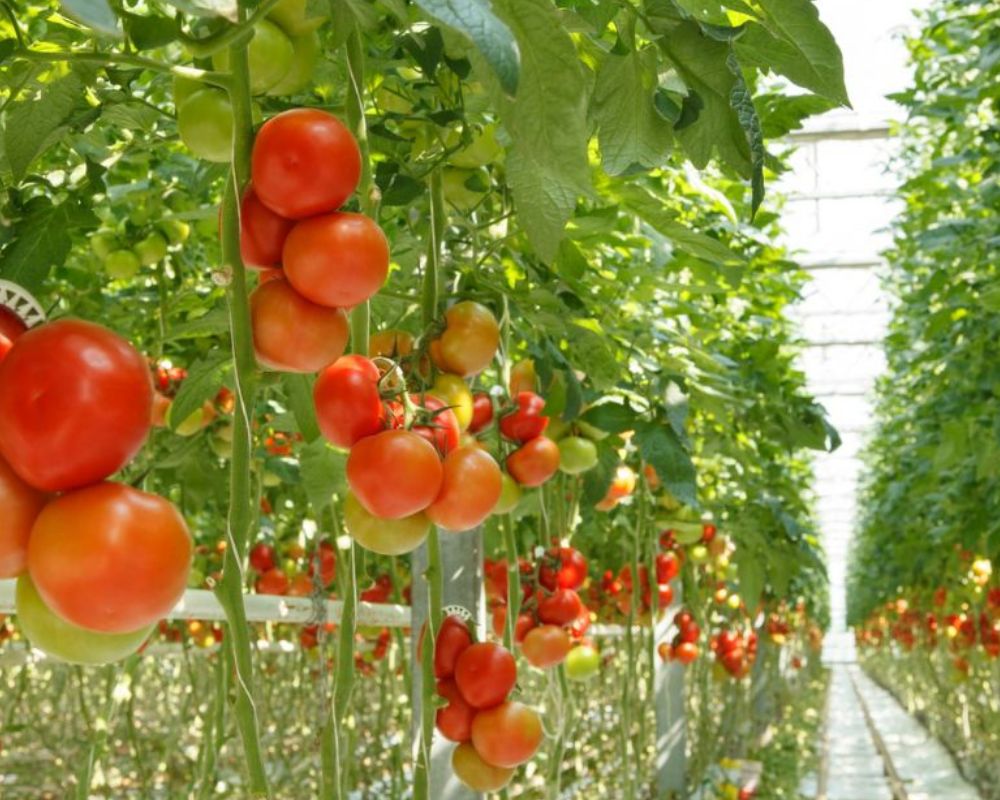
Discover the powerful benefits PA provides for the plant-soil system — and the planet.



